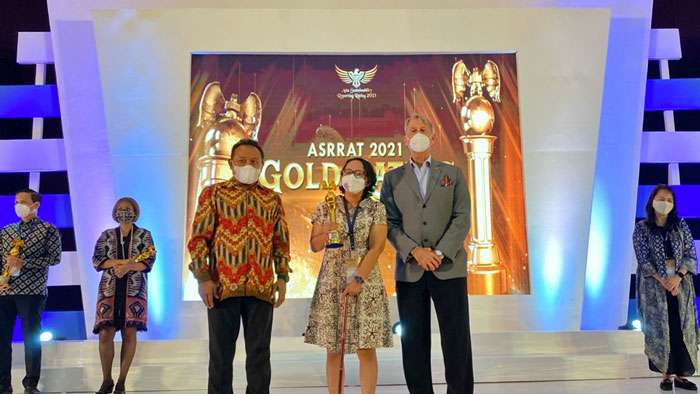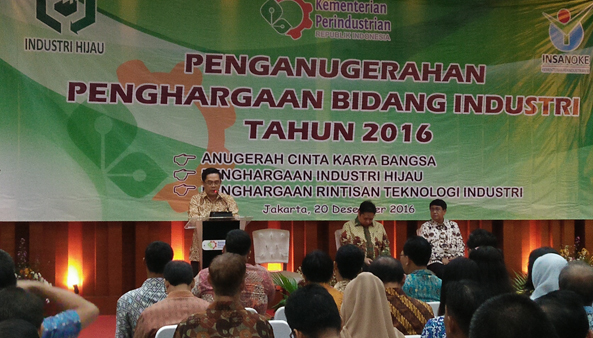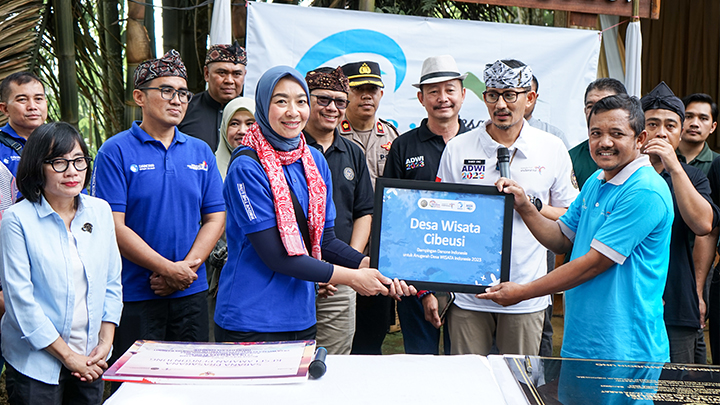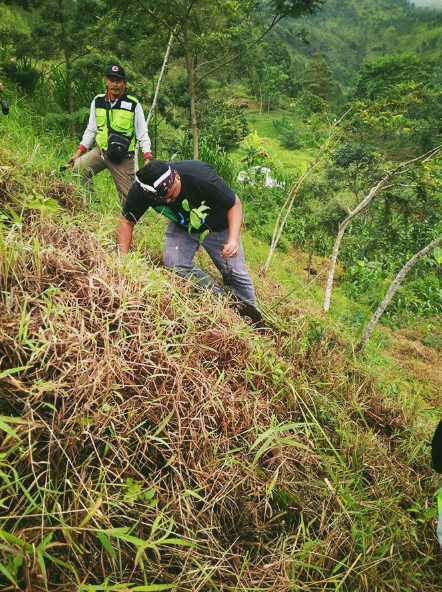Jakarta, November 18, 2021 - Danone-AQUA's 2019-2020 Sustainability Report won the gold category rating from the 2021 Asia Sustainability Reporting Rating (ASRRAT), which was held on November 17, 2021, in Jakarta. The report, which was compiled using the Global Reporting Initiative (GRI) Standard framework, collected Danone-AQUA's efforts in nature conservation, community and internal empowerment, as well as the involvement of various sectors in support of the government’s sustainable development goals (SDGs) in Indonesia.
National Center for Sustainability Reporting Chairman Dr. Ali Darwin appreciated the reporting and performance of companies participating in ASRRAT 2021. “Sustainability requires innovation and collaboration from various stakeholders, and these actions need to be disclosed in a sustainability report. We appreciate companies that have made efforts to continue to uphold transparency through the preparation of sustainability reports and encourage improvements in both quantity and quality of reports,” he said.
In the sustainability report entitled “Maintaining Good for a Sustainable Indonesia”, Danone-AQUA reaffirms its commitment to implementing sustainable business practices and Good Corporate Governance by providing transparency in every aspect of its operations. Through this sustainability report, Danone-AQUA describes its vision, strategy, and achievement of its sustainability performance for the last two years.
Danone Indonesia VP General Secretary Vera Galuh Sugijanto explained, “Danone-AQUA always strives to build a balanced, profitable, and sustainable business growth model to create long-term value for stakeholders. In line with Danone's global vision, One Planet One Health, we are committed to ongoing development of various sustainability initiatives to achieve the Government of Indonesia's Sustainable Development Goals (SDGs). Through this sustainability report launch, we hope to provide transparent information to stakeholders about the extent to which these sustainability initiatives have been achieved and their impact throughout our business chain.”
Previously, the Indonesian government had integrated 17 major goals and 169 targets from the SDGs agenda into the National Medium-Term Development Plan for 2020-2024. This demonstrates that the SDGs agenda is not just a global commitment, but also a guide for Indonesia to implement an inclusive and sustainable national development program. Realizing the importance of the company's role in this regard, Danone-AQUA is developing various initiatives that address natural sustainability by maintaining circularity in three areas, namely water, energy, and packaging. Danone-AQUA actively campaigns for healthy lifestyles, building business models that empower communities, building an inclusive work climate, and empowering employees.
As one of the partners in the initiative to maintain the sustainability of water resources, Gajah Mada University (UGM) Department of Geological Engineering Hydrogeologist Heru Hendrayana said that UGM and Danone-AQUA's collaboration in hydrogeological research has had a positive impact on human consumption and the natural habitat. “People will receive proper knowledge and understand how to maintain and conserve water resources. They will be able to determine the condition of the water and locate water resources in their area; therefore, becoming more concerned about the environment, especially with regard to sustainable use of water resources.” According to Heru, this will impact water source maintenance and the environment, as well as environmental protection programs or increased activity, such as reforestation, river restoration and garbage removal.
To ensure the circularity and sustainability of water resources, Danone–AQUA has carried out various initiatives to maintain quality and quantity. It has planted more than 2.5 million trees, built over 1,900 infiltration wells, built more than 81,000 biopores, built rain harvesting facilities, and developed 19 biodiversity parks (Kehati) – both inside and outside the factory areas – through collaboration with various parties.
In addition, to mitigate the impact of climate change, Danone-AQUA has developed a program to reduce its carbon footprint by encouraging the use of new and renewable energy (EBT) through the use of a (photovoltaic) PV mini-grid and expanding energy efficiency throughout its production process. This initiative is in line with Danone-AQUA's commitment to become a zero emissions or carbon neutral company in the company's entire supply chain by 2050, as well as to use 100 percent renewable electrical energy by 2030. This is also in line with Danone's global vision to be able to reduce 50 percent of its carbon footprint by 2030, and zero net carbon by 2050. In 2019-2020, Danone-AQUA successfully reduced its carbon footprint by 157,597 tons of CO2.
Danone-AQUA also strives to manage post-consumption packaging waste and play an active role supporting the government's achievement targets for waste management. Through the #BijakBerplastik movement (launched in 2018), Danone-AQUA plans to collect more plastic than it uses, to use 100 percent recyclable, reusable or biodegradable packaging, and to increase the proportion of recycled content in packaging to 50 percent by 2025.
Through various initiatives and collaborations, Danone-AQUA collects more than 13,000 tons of plastic annually from six recycling business units nationwide, at city-level waste banks and integrated waste management sites (TPST). Additionally, Danone-AQUA also actively educates consumers and school-age children about household-level waste management. Moreover, the company produces innovative environmentally friendly product packaging options. After previously launching AQUA Life, which is made of 100 percent recycled plastic, during the 2019-2020 reporting year, the company also launched the 600ml AQUA product - again, made from 100 percent recycled plastic - in the province of Bali.
People and community empowerment is also the focus of Danone-AQUA. So far, over 318 hectares of land has been converted into environmentally friendly agriculture to increase income and maintain water quality and quantity for residents. Furthermore, Danone-AQUA has developed the AQUA Home Service (AHS) program, which has empowered more than 8,000 housewives and families in Indonesia and improved the small and medium business climate through the DAMPING program, reaching over 500 beneficiaries.
Danone-AQUA is committed to continuing all sustainability initiatives, even during the pandemic that has occurred since 2020. At the beginning of the COVID-19 pandemic, the company continued to provide support to those most affected. In 2020, we distributed Rp 30 billion for the purchase of health equipment, which we donated to a number of hospitals in Indonesia, along with hydration for various health service providers, as well as ready-to-eat food for health workers and basic food packages for people who had been economically impacted by the COVID-19 pandemic. Through the cash for work program, the company also provides support to the community around the factory to earn income opportunities, while preserving the conservation of the Kehati Park.
The Danone-AQUA 2019-2020 sustainability report manifests the company's commitment to doing business while integrating wellness and good faith - be it for business progress, improving community welfare, or creating a sustainable environment.
"We thank all of the partners who have worked together to enact wide-ranging sustainability programs, the people of Indonesia, and of course the consumers who are involved in realizing a sustainable Indonesia," concluded Vera.






